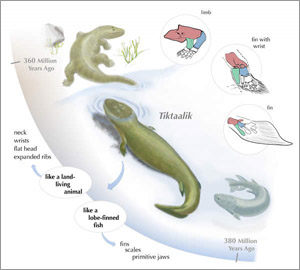Evolution in animals is faster in regions with warmer climates
 London, June 25 : In a new study, scientists have found out that evolution in animals is faster in regions with warmer climates, which could help explain why the warm topics are so species-rich.
London, June 25 : In a new study, scientists have found out that evolution in animals is faster in regions with warmer climates, which could help explain why the warm topics are so species-rich.
According to a report by BBC News, researchers have found that among pairs of mammals of the same species, the DNA of those living in warmer climates changes at a faster rate.
These mutations, where one letter of the DNA code is substituted for another, are a first step in evolution.
DNA can mutate and change imperceptibly every time a cell divides and makes a copy of itself.
But, when one of these mutations causes a change that is advantageous for the animal, for example, rendering it resistant to a particular disease, it is often “selected for”, or passed down to the next few generations of that same species.
Such changes, which create differences within a population but do not give rise to new species, are known as “microevolution”.
The idea that microevolution happens faster in warmer environments is not new. But, this is the first time the effect has been shown in mammals, which regulate their own body temperature.
“The result was unexpected,” said Len Gillman from Auckland University of Technology, who led the study.
“We have previously found a similar result for plant species and other groups have seen it in marine animals. But, since these are ‘ectotherms’ - their body temperature is controlled directly by the environment - everyone assumed that the effect was caused by climate altering their metabolic rate,” he added.
Scientists believe that this link between temperature and metabolic rate means that, in warmer climates, the germ cells that eventually develop into sperm and eggs divide more frequently.
“An increase in cell division provides more opportunities for mutations in the population over a given time,” explained Dr Gillman.
“This increases the probability of advantageous mutations that are selected for within the species,” he said.
“We suspected the same effect might be happening in mammals, because seasonal changes affect the animals’ activity,” Dr Gillman told BBC News.
In the DNA study, it was found that at higher latitudes where environments are colder and less productive, animals often conserve their energy - hibernating or resting to reduce their metabolic activity.
“In warmer climates annual metabolic activity is likely to be greater, so this will lead to more total cell divisions per year in the germline,” said Dr Gillman.
These results support the idea that high tropical biodiversity is caused by faster rates of evolution in warmer climates. (ANI)